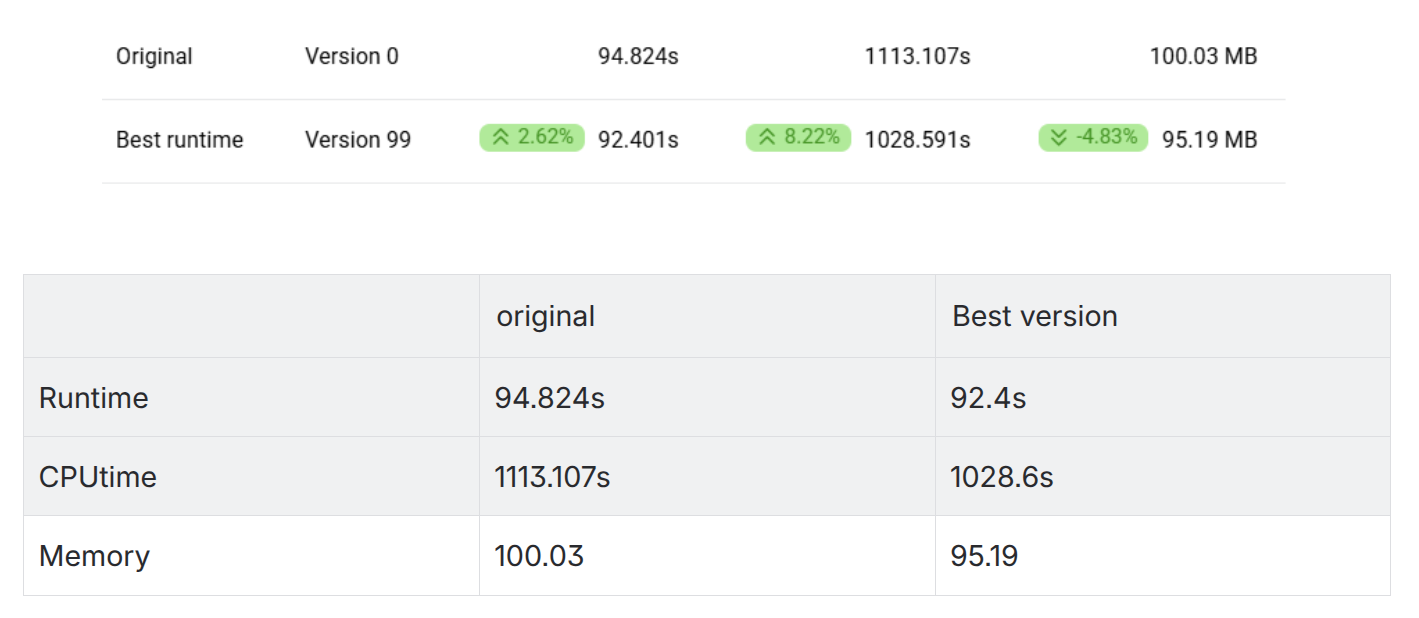Optimizing Uber's Zap Logging Library
Watch the Zap Optimization Workflow See the complete optimization process from start to finish
Project Overview
Project Name: Uber Zap
Language: Golang
Description: Zap is a high-performance, structured logging library for Golang, developed by Uber. Designed for speed and efficiency, it is optimized for applications that require fast, low-latency logging with minimal overhead.
Repository: https://github.com/uber-go/zap
Hardware Specifications

Optimization Results
After 10 evaluation cycles, we achieved significant performance improvements:

Modified Files
The optimization process identified and improved the following files:

Optimization Workflow

The Zap optimization followed Artemis's systematic optimization workflow:
1. Code Targeting
Identified performance-critical sections of the Zap logging library for optimization using the Agent Analysis code extraction method.
Learn more: Code Targeting and agent analysis
2. Version Generation
Generated multiple optimized versions using AI-powered code transformation and Artemis Intelligence genetic algorithms.
Learn more: Version Generation
3. Evaluate new version
ach generated version was validated using a custom runner and see real value of performance metrics to ensure correctness and measurable improvement.
Learn more: Code Validation
4. Review and Compare
Analyzed the code changes across all generated versions to identify the best-performing variant.
Learn more: Review and Compare
5. Code Optimisation
Applied the selected optimizations to create the final optimized version of the codebase.
Learn more: Code Optimisation
Conclusion
Through Artemis's systematic optimization approach, we successfully enhanced the performance of Uber's Zap logging library, demonstrating the platform's capability to optimize production-grade, performance-critical codebases written in Golang.